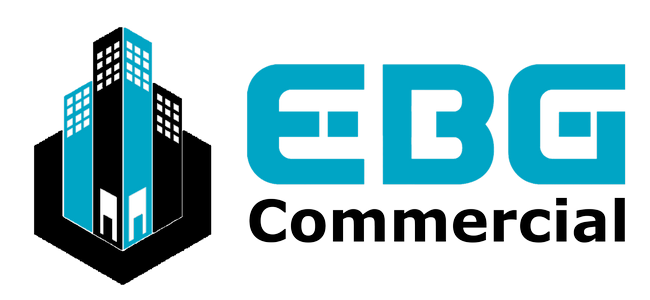The Importance of Regular Maintenance in Industrial Property Management
In the realm of industrial property management, regular maintenance isn’t just a checkbox on a to-do list—it’s a crucial aspect of sustaining operational efficiency, safety, and profitability. Industrial properties, from warehouses and factories to distribution centers, face unique challenges due to their size, the nature of the equipment used, and the volume of operations conducted. Effective maintenance strategies are not only essential for preserving property value but also for ensuring uninterrupted business operations and safeguarding both employees and assets. Here’s a deep dive into why regular maintenance is so vital in industrial property management.
1. Enhancing Operational Efficiency
Industrial properties often house complex systems and machinery that are critical to day-to-day operations. Regular maintenance ensures these systems operate at peak efficiency, minimizing the risk of unexpected breakdowns that can halt production lines. Routine inspections and servicing of equipment such as HVAC systems, electrical components, and conveyor belts help identify and address potential issues before they escalate into costly repairs or replacements.
For instance, a well-maintained HVAC system ensures consistent climate control, which is crucial for preserving both the equipment and the products stored within the facility. Efficient equipment translates to smoother operations and less downtime, ultimately contributing to higher productivity levels and a more streamlined supply chain.
2. Preventing Costly Repairs and Downtime
Proactive maintenance can significantly reduce the likelihood of major equipment failures, which are often accompanied by substantial repair costs and operational downtime. For example, regular inspections and servicing of critical machinery like forklifts or automated systems can catch wear and tear early, preventing breakdowns that could lead to expensive emergency repairs or even replacements.
Downtime in an industrial setting can be particularly costly, not only due to repair expenses but also because of lost production and delayed deliveries. By investing in routine maintenance, property managers can avoid these disruptions and maintain a steady flow of operations, ultimately saving money and enhancing the overall profitability of the business.
3. Ensuring Safety Compliance
Safety is paramount in industrial environments, where heavy machinery, hazardous materials, and high-traffic areas pose significant risks. Regular maintenance is essential for adhering to safety regulations and standards, which are designed to protect employees and prevent accidents.
For example, routine checks on fire suppression systems, emergency lighting, and safety alarms ensure they function properly in case of an emergency. Similarly, maintaining clear and well-lit pathways, properly functioning safety guards on machinery, and regularly inspecting electrical systems can help prevent accidents and injuries. Compliance with safety standards not only protects employees but also helps avoid costly legal issues and potential fines from regulatory bodies.
4. Extending Property and Equipment Lifespan
Industrial properties and their equipment represent significant investments. Regular maintenance is key to extending their lifespan and maximizing return on investment. By addressing minor issues before they become major problems, property managers can avoid premature equipment failure and the need for costly replacements.
For example, regularly cleaning and servicing HVAC systems, lubricating machinery, and inspecting structural components can help prevent deterioration and extend the useful life of these assets. Investing in preventive maintenance can ultimately lead to long-term savings and preserve the value of the industrial property.
5. Boosting Employee Morale and Productivity
A well-maintained industrial property contributes to a safer and more comfortable working environment, which can have a positive impact on employee morale and productivity. Employees are more likely to feel valued and motivated when they work in a clean, well-organized, and well-maintained facility.
Regular maintenance helps ensure that work areas are free from hazards, that equipment operates smoothly, and that the facility remains in good condition. This can reduce workplace stress, lower the risk of accidents, and create a more efficient working environment. When employees are confident in the safety and reliability of their workplace, they are more likely to be productive and engaged in their tasks.
6. Maintaining Aesthetic Appeal
While functionality and safety are paramount, the appearance of an industrial property also plays a role in its overall value and perception. Regular maintenance helps keep the property visually appealing, which can be important for maintaining a positive image with clients, visitors, and potential tenants.
A well-maintained property with clean, well-organized facilities and attractive landscaping can enhance the reputation of the business and create a positive impression. This can be particularly important for industrial properties that host client visits, serve as distribution centers, or are used for other client-facing functions.
7. Planning for Future Needs
Regular maintenance also provides valuable insights into the condition of the property and its systems, helping property managers plan for future needs and upgrades. Through routine inspections and maintenance, managers can identify areas where improvements are needed or where additional investments might be required.
For example, if maintenance reports indicate that certain equipment is approaching the end of its useful life, property managers can begin planning for its replacement or upgrade. This proactive approach helps avoid last-minute rushes and ensures that the property remains competitive and capable of meeting future demands.
8. Building a Strong Maintenance Culture
Finally, prioritizing regular maintenance fosters a culture of responsibility and attention to detail within the organization. When maintenance is viewed as a critical component of property management rather than an afterthought, it sets a standard for how all aspects of the property are managed and cared for.
A strong maintenance culture encourages employees and contractors to take ownership of their roles and responsibilities, leading to better overall management practices and a more proactive approach to property care. This culture of diligence and respect for the property can translate into more effective management and a more successful industrial operation.
Conclusion
Regular maintenance in industrial property management is not just about keeping systems running smoothly; it’s about protecting investments, ensuring safety, and maintaining operational efficiency. By committing to routine inspections, servicing, and repairs, property managers can prevent costly breakdowns, comply with safety regulations, extend the lifespan of equipment, and create a positive working environment.
In an industry where efficiency and reliability are key, the importance of regular maintenance cannot be overstated. It’s a critical practice that supports the long-term success and sustainability of industrial properties, benefiting both the property owners and the businesses that rely on them. Investing in regular maintenance is investing in the future stability and growth of industrial operations.


